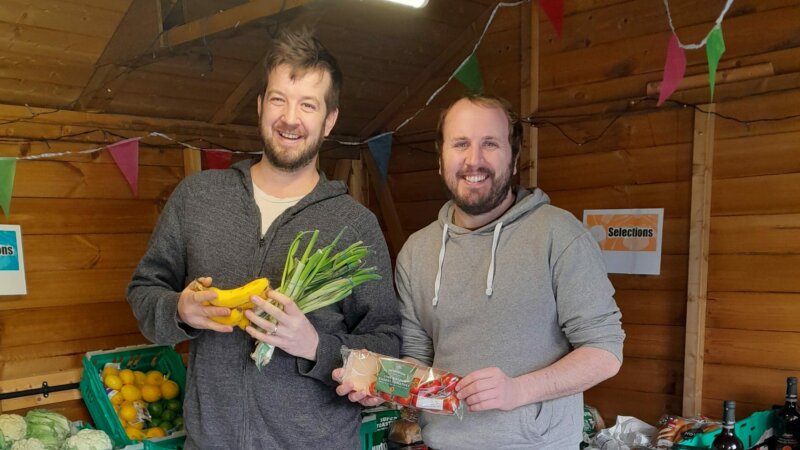Legal Highs: The Low-down on Novel Psychoactive Substances
So-called ‘legal highs’ have rarely been out of the news since the emergence of mephedrone in 2009, the moral panic that followed and its subsequent rushed Class B classification, based largely on media and political pressure.
The proliferation of legal highs, more properly called novel psychoactive substances (NPS), is rightly seen as a threat to public health, with repeated amendments to the Misuse of Drugs Act in an attempt by the government to keep up with vendors churning out new drugs. While the term ‘legal highs’ gives an impression of safety, very little is known about most of these substances, with the paradoxical situation that hospitals are better equipped to handle overdoses and addictions to established controlled drugs like heroin or cocaine than these new drugs. It also implies the drugs are legal when many of them, especially those mentioned in the media, have already been controlled. One of the main dangers of NPS is just how little we know about them. As fast as the government can legislate against a new substance, new compounds are being designed by chemists around the world, specifically to get around the law.
Sold as ‘plant food’, ‘bath salts’, ‘pot pourri’ or ‘research chemicals’ and labelled ‘not for human consumption’, head shops and internet vendors selling these drugs are not allowed to give dosage advice, which also means they are unable to give harm reduction advice. In reality, it’s unlikely they’d be able to give much advice as very little is known about most of these compounds. Many have never been tested on animals, let alone humans. Branding means nothing. Test purchases show contents vary wildly from batch to batch. Among legal highs are drugs mimicking everything from cannabis to cocaine. One white powder is not equal to another. Some might give a light buzz after snorting several lines, others can cause fatal overdoses from the tiniest dab on a licked fingertip.
Run by Public Health Wales, the Wedinos project (Welsh Emerging Drugs and Identification of Novel Substances) was set up as a pragmatic measure to address the increase in NPS use. The government-funded drug testing service was designed to identify the chemicals currently in circulation in Wales. Samples are received anonymously and test results are posted online, identified by a reference number. Samples of legal highs branded as ‘Ivory Dove’ and ‘Ivory Dove Ultra’ were submitted for testing. On analysis by Wedinos, the samples in fact contained different ingredients to those listed online, including a painkiller, a dissociative chemical and a Class-B substance.
People need to understand the risks of mixing drugs, especially with alcohol, as we really don’t know how they will interact. It is particularly important with regards to alcohol because it suppresses breathing, which means that mixed with another downer drug, people could pass out and stop breathing or choke on their vomit. Mixing alcohol with upper drugs could mean that the full combined effects of both drugs are masked, meaning that people can take more than they mean to, with extra pressure put on their hearts. NPS are increasingly also being found in tested samples of more established drugs such as MDMA and cocaine, either alongside those drugs or replacing them completely, making effects and risks even harder to predict.
So what is the government to do, when laboratories mass produce new drugs mimicking the effects of illicit ones, which are then sold so freely? The Independent Scientific Committee on Drugs (ISCD) recommends that the government’s approach to NPS be evidence-based, with a baseline of evidence needed on a drug before a policy change is made. New Zealand recently passed the Psychoactive Substances Act 2013 regulating the availability of novel psychoactive substances and governing a legal framework for testing and regulating their sale, manufacture and importation. This is a completely new approach which we’re monitoring with interest as it is potentially a more effective way of reducing harms to users and steering people away from particularly dangerous drugs. Since some legal highs with similar effects to cannabis and LSD are often much more harmful than the ‘originals’, it would also be wise to consider a similar regulatory approach to these relatively less dangerous illegal drugs, if this reduces demand for more dangerous alternatives.
It is also important to keep NPS use in perspective and focus available resources on tackling the drugs that do most harm. The annual death toll linked to all NPS combined is a few dozen. Traditional illegal drugs such as heroin and cocaine currently kill and harm many more people, and alcohol and tobacco deaths are counted in the hundreds of thousands.
Our advice on NPS is: don’t use them. If you do, research the product thoroughly to get an idea of the effects, dose and duration. Start with a very small dose and use it without any other drugs, including and especially alcohol. Wait two hours before taking any more, don’t take it alone, and make sure someone else knows exactly what you’ve taken. For more information on these drugs visit the ISCD website listed below. You can also find information on many more drugs based on the latest scientific research there, as well as user-friendly analysis of research developments and critiques of media drugs coverage.
SOPHIE MACKEN
Director, Independent Scientific Committee on Drugs
drugscience.org.uk
LOCAL TRADER INTERVIEW
We spoke to a local trader who sells NPS to get their perspective on the issue. They preferred to remain anonymous.
Why do you think there is a demand for legal highs?
For some people, NPS represent an easy and cheap way of altering one’s state of consciousness. This is an attribute which has been sought after by humans since the dawn of mankind.
How do you source them and how do you decide which to stock?
There are many different companies selling lots of different types of NPS. There are currently no regulations in place to stop pretty much anyone making them, meaning there are a lot of potentially less responsible manufacturers around that are best to avoid. The way we source them is from larger companies that are providing a product which stays constant in its content.
How do you keep on top of a market that is changing so quickly?
It is important to keep up to date with any changes in the law as one chemical present in dozens of different NPS may be banned, rendering large quantities of stock unsellable after a very short timeframe. Whilst it would appear that banning something is a positive step forward, new products are available within weeks, and the new chemicals have slight or even dramatic differences to the ones they are replacing. There is also no real science behind the banning of NPS. Anything that the media yells about enough gets added to the list.
What problems or restrictions have you come up against when selling legal highs?
The biggest restriction and biggest danger of NPS is the limited amount of information that is able to be given to somebody buying them. The best way to avoid any risk at all is not to take them, but if we assume that somebody is going to make the decision to do so anyway there is very much a wrong way to do something. The dosage varies wildly and often even a very small amount can be a large dose. Yet the official reply to questions about dosage is to explain, “I’m sorry, NPS are not for human consumption. I cannot tell you anything.” Imagine selling a litre of vodka to somebody who had never heard of alcohol and only being allowed to tell them not to drink it.
How do you think the government should handle the growing popularity of NPS?
The existence of NPS – in particular synthetic cannabinoids, which are meant to mimic cannabis – has only come about due to the demand for something which has been made illegal.
Prohibition of known and understood substances creates a dangerous black market and also leads to the availability of potentially hazardous NPS. Science based testing and regulation models like that which New Zealand is trialling are the only way forward.
INTERVIEW BY SAM WALBY
If you or someone you know has a problem with drugs or alcohol, contact CRI:
CRI Young Peoples Service (under 18s) – 0114 2752051
CRI Arundel Street Adult Services – 0114 2721481
cri.org.uk
Photo by TICTAC Communications Ltd )





